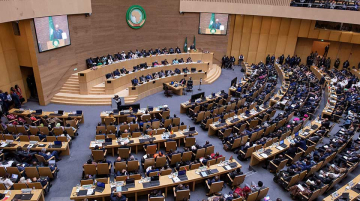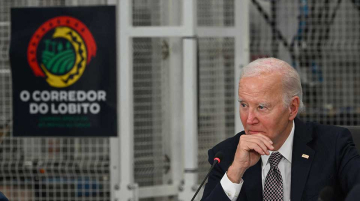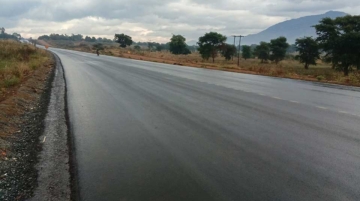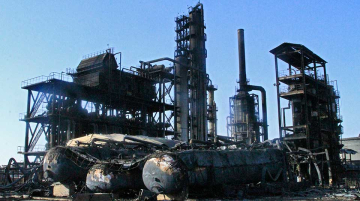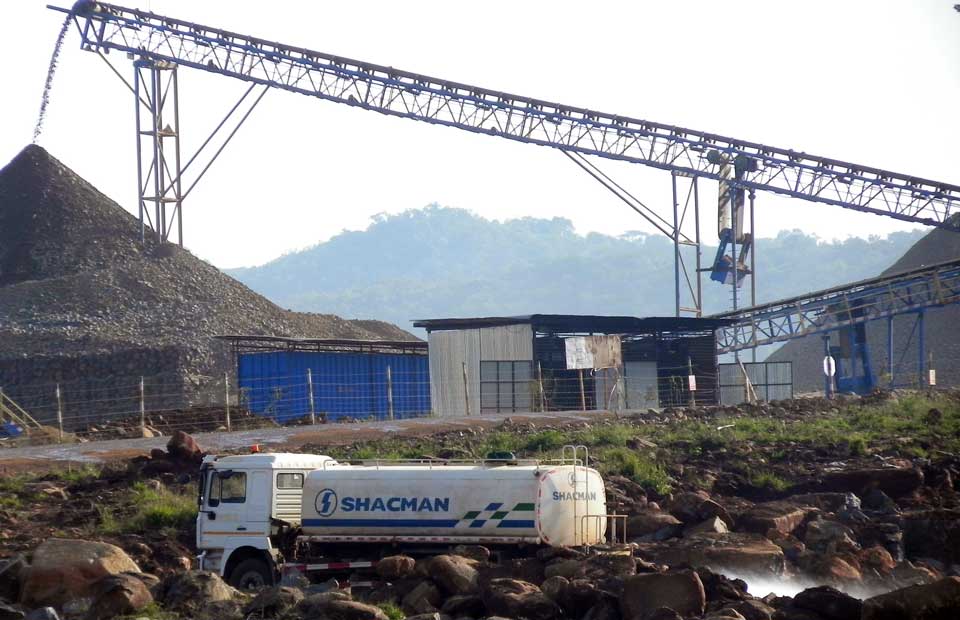
In a notable show of pragmatism, Eswatini, the only African country that maintains formal diplomatic ties with Taiwan, is working with Sinohydro, one of China’s largest state-owned construction firms.
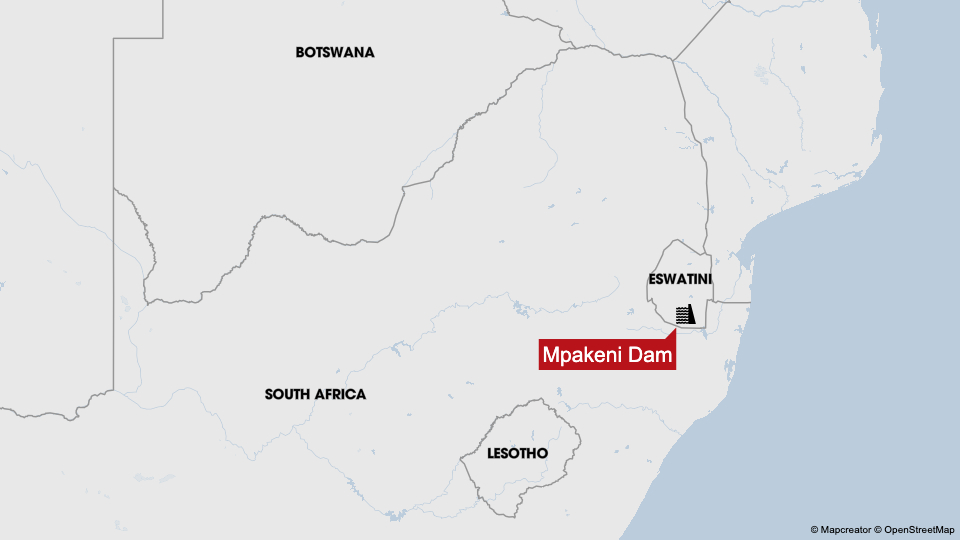
Despite longstanding diplomatic ties with Taiwan, an arrangement that contravenes Beijing’s One China policy, Eswatini nonetheless moved ahead with awarding the contract for its Mpakeni dam to Sinohydro in 2023. The company is currently overseeing the construction of a multimillion-dollar dam project in the small southern African kingdom, which has a population of just 1.2 million people.
The ambitious dam initiative is spearheaded by project owner and government entity Eswatini Water and Agricultural Development Enterprise (EWADE). It falls into the first phase of the Kingdom’s Mkhondvo-Ngwavuma Water Augmentation Program aimed at enhancing food security, building climate change resilience, and reducing poverty through water and irrigation infrastructure development in Eswatini.
The decision to award the contract to Sinohydro may have marked a symbolic shift in Eswatini’s diplomatic loyalties, but it has done little to ease tensions with Beijing. In June, China excluded Eswatini from a potential sweeping new zero-tariff policy extended to 53 African countries, underscoring the enduring diplomatic rift over Eswatini’s recognition of Taiwan.
Local Tensions Over Labor and Procurement
While international tensions continue, Sinohydro’s debut project in Eswatini has prompted a local backlash amid allegations of unfair labor practices and procurement discrimination that are contributing to project delays. Projected to create local jobs and support local companies, critics accuse the Chinese state-owned contractor of sidelining local subcontractors, offering low wages, and violating labor standards.
Local firms say the company favors Chinese or foreign-linked suppliers at the expense of domestic businesses. This has a knock-on effect for the South African partners that many Swazi subcontractors rely on for construction materials.
“Most [of Sinohydro’s] building materials aren’t sourced locally. The bulk of the steel and other building materials comes from China. Even the Dugongo cement used here is a Chinese brand, trucked in from their depot in Mozambique,” said Richard Vilane, a rural subcontractor whose contract with Sinohydro was renewed only twice during a 60-day stretch last year.
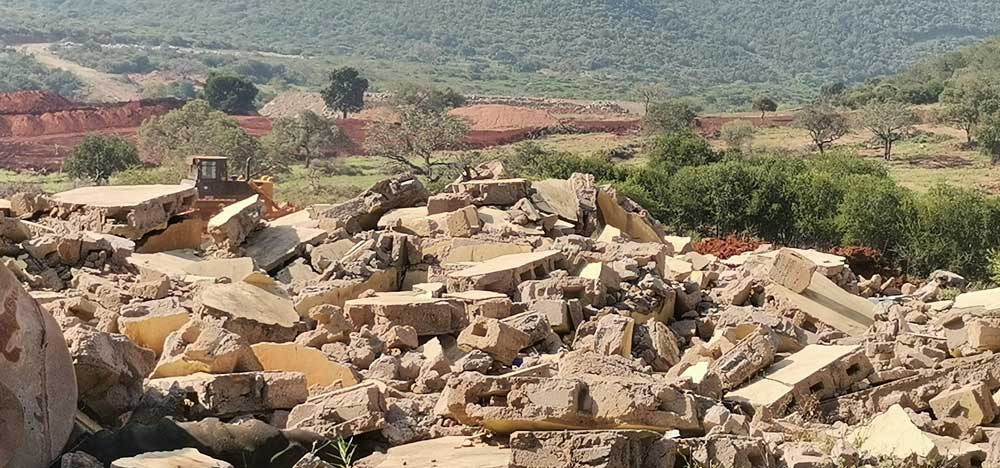
Vilane said he earned roughly 500,000 lilangeni ($28,245) during his two-month stint. While the earnings were significant by local standards, he claims he was abruptly removed from the project soon after receiving payment.
“Sinohydro is smart in avoiding the law. They make sure contracts with local firms don’t exceed 30 days, so if they’re not renewed, there’s no legal exposure.”
According to Vilane, many Swazi subcontractors with similar short-term agreements were dismissed once Chinese heavy machinery arrived on site. “After canceling our contracts, all the smaller tasks we were handling were reassigned to Chinese workers,” he said.
Government Defends Partnership with Sinohydro
However, EWADE chief executive Samson Sithole rejected Vilane’s allegations. He maintained that local communities and Eswatini-based businesses are closely integrated into the China-backed infrastructure project.
“[Sinohydro] has made significant efforts to support the local economy,” Sithole said, citing procurement from more than 100 domestic suppliers and the subcontracting of local small and medium enterprises for road repairs. He added that heavy equipment is also being leased from regional firms.
“This inclusive approach not only strengthens local supply chains, but also supports job creation and skills development across Eswatini,” Sithole said. “It ensures the project delivers broader socio-economic benefits beyond its primary infrastructure goals.”
Sithole noted that more than 800 local residents are currently employed by the contractor, figures he described as over and above the broader community engagement efforts.
Trade Union Raises Alarms on Labor Practices
Amalgamated Trade Union of Swaziland general secretary Wonder Mkhonza said that while Sinohydro has taken steps to ensure worker safety, its approach to labor rights remains inadequate.
“They don’t subscribe to the principle of equal pay for equal work,” he said. “There’s no performance management system in place. Instead, they claim to reward effort using ‘a Chinese heart’, but that’s not objective or measurable.” Mkhonza said the lack of transparency has contributed to growing unrest at the Mpakeni dam site, where workers downed tools in protest over reward polices in May.
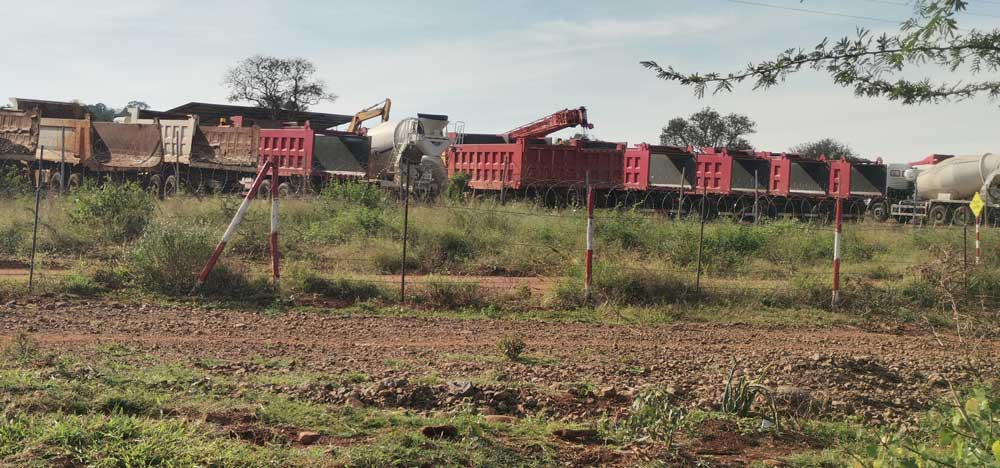
He also raised concerns about the predominance of Chinese personnel in key administrative roles. “We’re seeing an influx of Chinese workers, even in departments where qualified Swazis are available,” he said. “It’s deeply concerning that the finance and human resources offices are led by Chinese nationals, including one who appears unaware of local labor laws.”
Broader Debate Over China’s Development Model
Sinohydro’s project manager, Hu Yongzhen, declined to respond to media inquiries regarding concerns raised by workers and Swazi subcontractors involved in the Mpakeni dam project.
However, former political science lecturer at the University of Eswatini Petros Magagula downplayed allegations of labor rights violations, calling them part of a broader critique rooted in Western neoliberal development models. “China adopted the capitalist system long ago to compete with the West,” he said. “They’re doing what Western and Arab companies have long done in Swaziland.”
EWADE’s Sithole acknowledged that working with Chinese contractors presents a distinct set of trade-offs compared to Western development partners.
“One key benefit is their technical competence and disciplined execution,” he commented, noting that Chinese firms deliver infrastructure efficiently and at competitive prices, which presents an appealing combination for developing nations. “That said, challenges persist. Language barriers and rigid bureaucratic procedures often result in slower approval processes and delays in project adjustments,” Sithole noted.
Despite these challenges and the fact that Eswatini is still being penalized for its relations with Taiwan, Sithole advocates for continued collaboration with China, particularly in agriculture and water infrastructure. That, paired with skills transfer and capacity building, can significantly advance Eswatini’s development goals.”
Phathizwe Zulu is an independent journalist based in Eswatini



